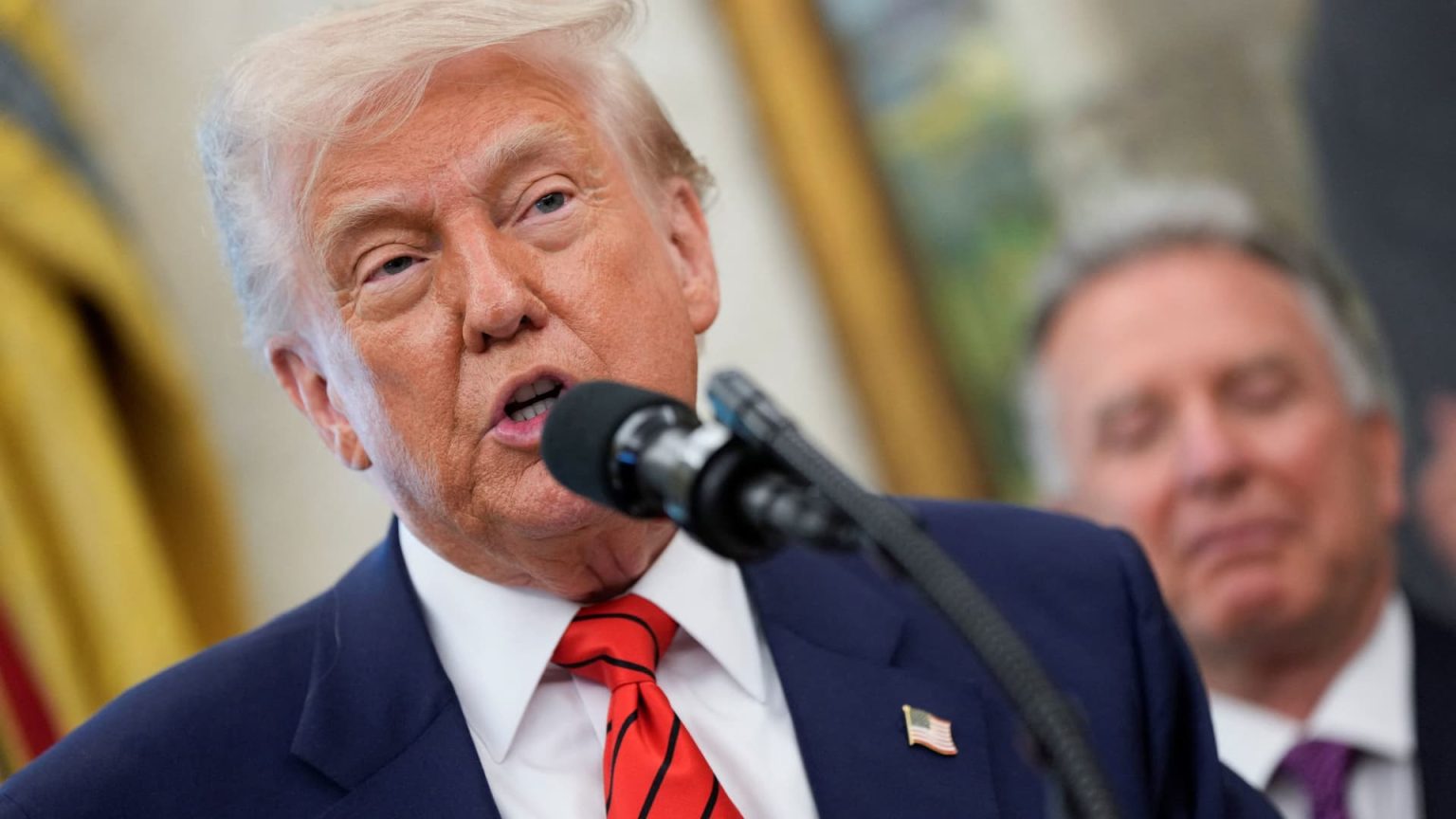Former President Donald Trump has expressed tentative support for increasing taxes on the wealthiest Americans, though he remains conflicted about the political ramifications. This announcement comes after discussions with House Speaker Mike Johnson regarding a significant tax and spending bill aimed for passage within Congress this year. Trump’s position marks a notable deviation from traditional Republican views, as he contemplates how a tax hike could benefit lower-income workers.
| Article Subheadings |
|---|
| 1) Trump’s Tax Proposal: A Shift in Republican Strategy |
| 2) Contextualizing Trump’s Historical References |
| 3) Internal GOP Reactions and Concerns |
| 4) Potential Impact on Tax Legislation |
| 5) Future Implications for the Republican Party |
Trump’s Tax Proposal: A Shift in Republican Strategy
In a surprising move, Trump took to social media to endorse a higher tax rate for affluent individuals, suggesting that he and others are willing to accept what he called an “even a ‘TINY’ tax increase for the RICH.” He positioned this potential tax increase as a means to support lower and middle-income families. This shift represents a significant departure from traditional Republican tax policy, which has typically emphasized tax cuts for the wealthy. Trump’s post on Truth Social hints at a willingness to break from the party’s long-standing stipulations, raising questions about his influence within Republican ranks.
Contextualizing Trump’s Historical References
Trump’s comments included references to former President George H.W. Bush’s broken promise not to raise taxes during his presidency. He stated, “the problem” with a tax increase is that opponents would use historical failures against the party, linking himself to Republican sentiments that highlight a protective stance against tax increases. By recalling Bush’s infamous “Read my lips: No new taxes” campaign promise, Trump outlines potential pitfalls of shifting tax policy. His counter-argument suggests that it was not the tax increase that lost Bush the election, but rather the candidacy of Ross Perot, illustrating a complex relationship with past Republican failures.
Internal GOP Reactions and Concerns
In response to Trump’s commentary, officials within the GOP have voiced their apprehensions regarding his possible endorsement of tax increases. House Speaker Mike Johnson and other party members are grappling with balancing Trump’s demands for extensive tax cuts with the realities of fiscal responsibility. Trump’s inner circle has reportedly been in discussions about the feasibility of incorporating a higher tax bracket for the wealthy, alongside proposals to eliminate loopholes beneficial to high earners. These ongoing debates illustrate the tension within the party as lawmakers seek to align with both Trump’s aspirations and the concerns of fiscal conservatives.
Potential Impact on Tax Legislation
As Congress moves forward with discussions surrounding tax legislation, the implications of Trump’s comments could significantly affect negotiations. Republican leaders are attempting to articulate a coherent bill that resonates with both Trump’s tax cut priorities and the necessity to mitigate ballooning deficits. The potential inclusion of tax increases on the wealthiest could complicate these efforts. Furthermore, as Trump suggests an openness to tax changes, lawmakers face mounting pressure to either conform to his evolving stance or risk alienating their base and conservative voters who traditionally oppose tax hikes.
Future Implications for the Republican Party
Trump’s tentative support for raising taxes represents a critical juncture for the Republican Party. As the party navigates between its historical foundations and the evolving political landscape influenced by Trump, members will need to address internal divisions about fiscal policies. Should the party embrace a shift towards increased taxation for the wealthy, it risks alienating core supporters who advocate for the traditional tax cut narrative. The outcome of these discussions will undoubtedly shape future Republican platforms and the broader approach towards economic policies.
| No. | Key Points |
|---|---|
| 1 | Trump expresses tentative support for higher taxes on the wealthy. |
| 2 | Referencing Bush’s tax promise, Trump highlights historical risks. |
| 3 | Internal GOP struggles over tax policy direction. |
| 4 | Ongoing discussions about potential tax increases complicate legislation. |
| 5 | Trump’s comments could reshape future Republican strategies. |
Summary
Trump’s hesitance to endorse tax increases alongside a desire to support lower-income workers places the Republican Party at a crossroads. As the current political landscape continues to evolve, the implications of his statements may significantly impact GOP strategies and legislative attempts. The party’s ability to unify around a clear and viable tax policy will be crucial in navigating the complexities of modern governance, fiscal responsibility, and the expectations of their voter base.
Frequently Asked Questions
Question: What triggered Trump’s newfound stance on taxing the wealthy?
Trump’s comments followed discussions with House Speaker Mike Johnson regarding a potential tax and spending bill that could be passed by Congress. His views represent an evolving strategy aimed at addressing economic disparities while maintaining party support.
Question: How might Trump’s ideas influence Republican leadership?
Trump’s suggestions may create pressure on GOP leaders to reconsider traditional tax policies, balancing the demands of fiscal conservatives with his proposals for higher taxes on the rich. This could lead to a significant shift in party positions.
Question: What does Trump’s historical reference to George H.W. Bush convey?
By referencing Bush’s failed promise not to raise taxes, Trump highlights the potential political repercussions of abandoning traditional Republican tax ideologies. It underscores the risks that could accompany any tax increase proposals within the party.


